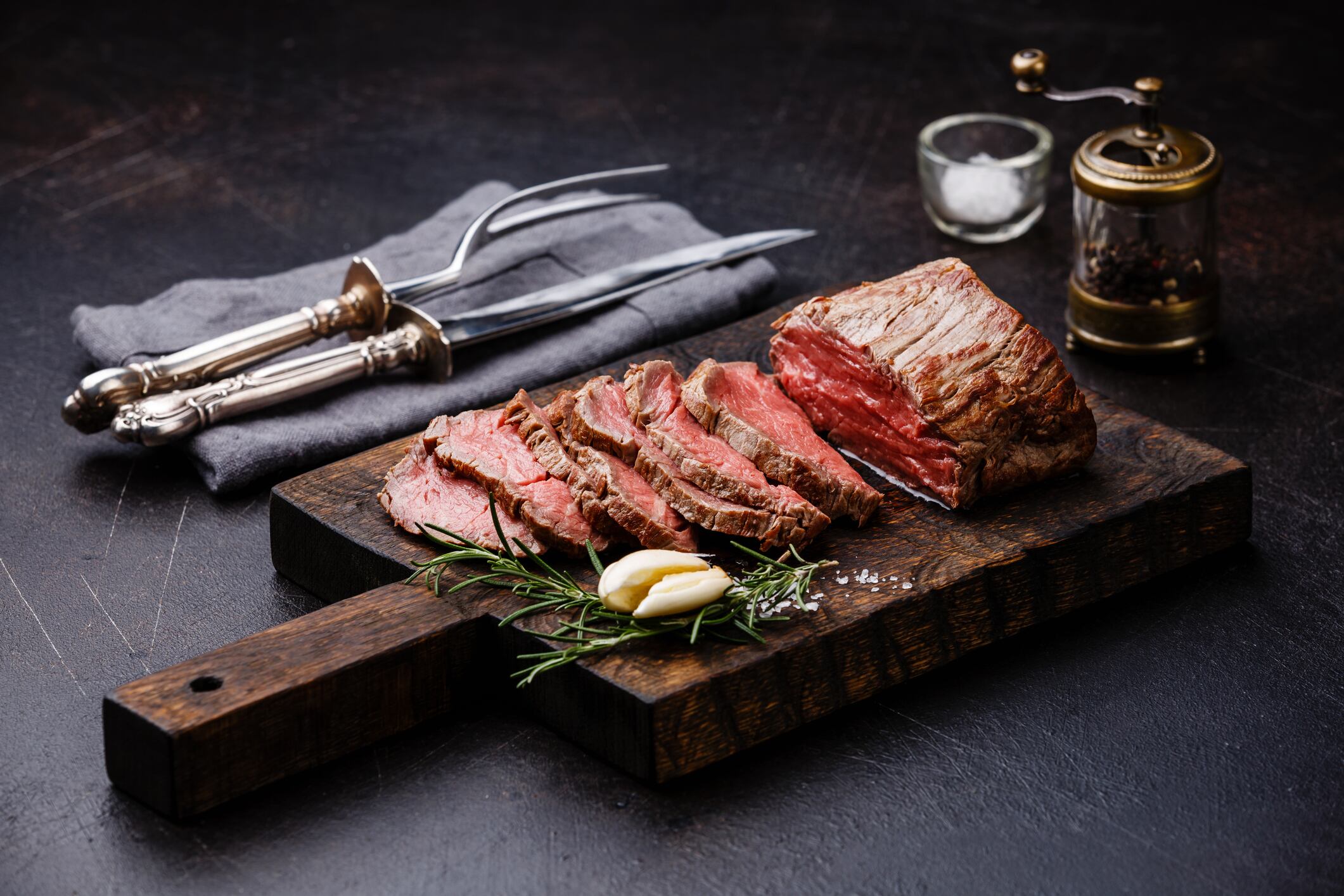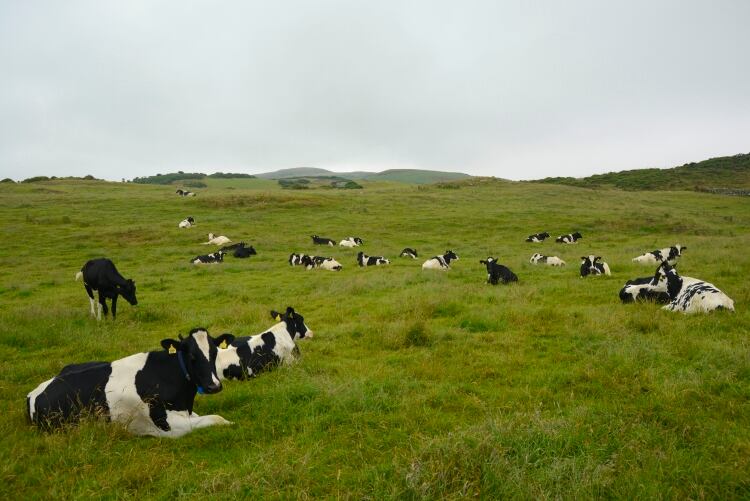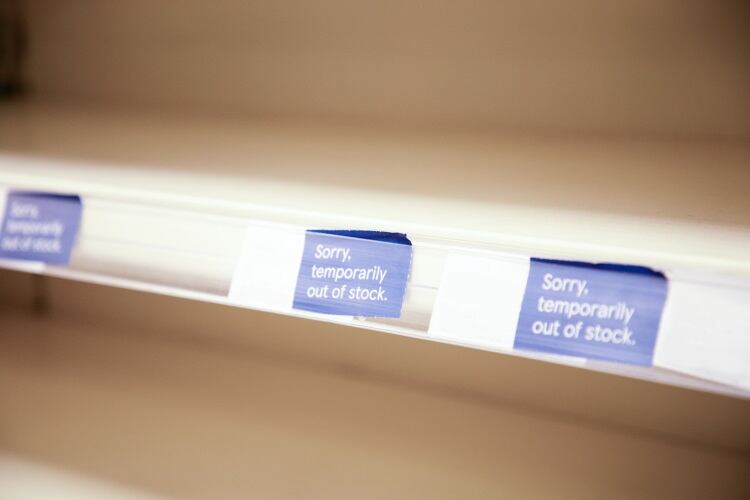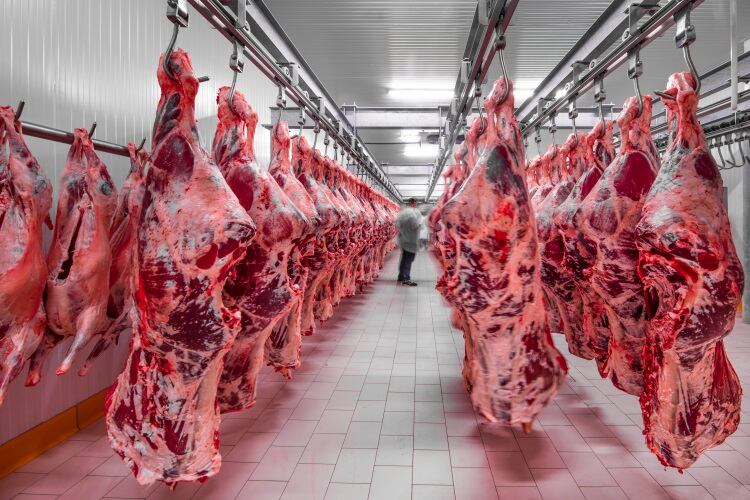Red meat processors and retailers must promote premium steak cuts, roasting joints and lamb in stores to support foodservice companies and ease pressure on producers of beef mince and cheap cuts, farmers have urged.
The more expensive cuts would have been sold by restaurants and caterers, which are now closed for business because of social distancing rules.
Northern Ireland Democratic Unionist Party MP Edwin Poots, Lesley Griffiths, Welsh government minister for environment, energy and rural affairs, and now Scotland’s rural economy secretary Fergus Ewing have called for more Government support for farmers.
They have written to George Eustice, secretary of state for the Department for Environment Food and Rural Affairs (Defra), particularly underlining the plight of dairy, beef and lamb producers.
Impact on dairy and carcase balance
In his letter, Ewing stated: “I have welcomed the sharing of information between our officials and ourselves on many common issues that are now starting to impact specific sectors. Impacts such as the absolute collapse of the out-of-home drinks market is having on all our dairy sectors and the issue of achieving carcase balance in our beef and sheep sectors, while prices are starting to fall to potentially unsustainable levels.
“Similar difficulties are of course being experienced across all agricultural sectors, affecting both processors and primary producers, whom I must commend for rising to the occasion so far to keep our nations supplied at this time, while adhering to the tight guidelines required to operate and protect staff in a safe manner.
“I am pleased our red meat levy bodies have agreed to share marketing assets and make use of the Ring Fence Funding to launch a national marketing campaign that will be tailored by each region and help encourage additional sales in some sectors. I understand that AHDB [Agriculture & Horticulture Development Board] will require Defra’s approval, and trust that this will be provided rapidly.
“As we have discussed, we also need to see all the major retailers making immediate payments to small suppliers to help with cash flow during this difficult period and use their collective consumer reach to help promote all our UK primary produce at this time.”
In an open letter, NFU livestock board chairman Richard Findlay and vice-chairman Wyn Evans said the supply chain had a moral responsibility to act in the interests of consumers and farmers. They warned that ongoing high demand for products such as mince would soon become unsustainable.
‘Unsustainable returns’
In the letter, they stated: “Beef and sheep farmers are facing massive and unwarranted disruption to their livelihoods as a result of the coronavirus outbreak. But while UK consumers continue to demand high-quality beef and lamb, which UK farmers can supply, we see unsustainable returns for our livestock that are undermining the moral partnership needed between farmers, processors and retailers.
“It’s clearly a national priority to ensure shoppers can feed their families and keep the nation going at this time of need. The farmers we represent feel passionately about contributing to this effort and we want to make sure that you and your customers are assured that British beef and lamb is in plentiful supply.
“We understand very well that buying patterns in retail have caused significant problems with products like steaks and joints being outsold and out of balance by mince. Put simply, we cannot sustain a stable supply of one half of each animal. We are urging all retailers to take stock in this period of uncertainty and reconsider their responsibility to their suppliers in this newly constrained marketplace. For beef and lamb, that means buying in balance and ensuring farmers receive a sustainable return.”
The NFU said it would be contacting all retailers separately to understand individual plans to deal with the disruption in supply.
Scotland quality beef and lamb
NFU Scotland (NFUS) wrote to the eight biggest grocery retailers last week to urge them to scale back on cheap overseas meat imports to meet demand and source local quality beef and lamb.
NFUS president Andrew McCornick said: “On red meat, letters have been sent to the UK and Scottish Governments on the need, once we enter the recovery phase, for pump-priming promotional activity and we welcome the announcement from QMS [Quality Meat Scotland] of a campaign to promote beef and lamb this Easter. Hopefully, a united GB campaign that will drive this sector forward can be created using the ringfenced levy funds.
“Scotland’s farmers and crofters, producing the finest red meat in the world, were justifiably angered and frustrated at the appearance of Polish beef on some supermarket shelves at the start of this crisis. NFUS immediately contacted the two retailers involved and received assurances that this was nothing more than a ‘fill gap’ to tide them over during the panic-buying spree and it was not something they were intending to repeat. We will hold them to account on that.
“All major retailers have been written to in the last 24 hours reminding them that they are uniquely placed, through a clear commitment to domestic sourcing, to give farmers and growers the confidence to continue producing. We need to see Scottish and British on the shelves and not find imported produce, previously destined for the foodservice sector, diverted onto shop shelves.
“One retailer has already confirmed its intention to run a promotion on higher-value beef cuts to correct carcase balance issues and maintain the value of the cattle at a time when prices are falling. We would welcome speedy responses from all retailers contacted on what positive actions they have planned in the short term to support food production from farmgate to the plate.”
Northern Ireland
Livestock and Meat Commission for Northern Ireland chief executive Ian Stevenson urged consumers to enjoy home-cooked Farm Quality Assured Beef and Lamb over the Easter bank holiday weekend. “With restaurants and the rest of the foodservice sector now largely closed in the wake of the COVID-19 restrictions, consumers now have the perfect opportunity to sit down and enjoy a whole host of easy-to-prepare and cook red meat dishes, all of which the whole family can enjoy.
“With retail outlets being the main source of food for consumers at this time, our assured produce is playing a key role in meeting this supply. Consumers across Northern Ireland should actively seek out the FQAS logo on all the beef and lamb they buy over the coming days. If consumers are buying beef and lamb in butchers’ shops, ask for evidence that it is locally sourced and quality assured, take nothing for granted.”
Welsh beef and lamb
Meanwhile, Hybu Cig Cymru (HCC) – Meat Promotion Wales has launched a campaign to encourage house-bound families and individuals to buy more PGI Welsh Beef and PGI Welsh Lamb from supermarkets, independent retailers and butchers.
HCC market development manager Rhys Llywelyn said: “Consumers are seeking out new ways to cook while many have more time available to them. The campaign aims to guide these consumers on ways of cooking with steaks and larger cuts, to ‘bring the restaurant to your home’ and encourages experimentation with slow-cooked dishes.”
Dairy situation
In his 10 April blog, NFUS milk chairman Gary Mitchell said the closing of cafés and restaurants as dairy farmers approached the spring flush was the perfect storm of bad news for the industry.
“I have taken many calls from farmers questioning why people are not using the same amount of milk at home as they would do in a normal situation,” said Mitchell. “The data I’ve studied so far is that approximately 10% of UK milk is supplied to cafés, hotels, etcetera, then we have wholesalers who also supply food manufacturing companies.
“One simple example is that the UK has almost 28 million households and if they make instant coffee or have a cup of tea at home, they will be using at most 20-30ml of milk in their drink, but a latte or cappuccino from a high street chain will use from 120-150ml per cup, so when you do the sums, that is a huge drop in liquid consumption.”
He said he had written to retail representatives urging them not to ration dairy products, so that some of the slack could be taken up by retail purchases.
Milk volumes to rise
Mitchell stated: “To add to the problem, the industry is now heading into spring flush. Many cows have now calved and are being fully grazed, so we project milk volumes are still set to rise. At the current time, industry experts suggest there are 1.5 million litres surplus daily in the UK, and historic data concludes this figure could double by 20 May, the traditional date of spring flush peak.
“With this drop in demand and increase in supply, it doesn’t take a genius to see where we are heading at a rapid pace. The processors inform me that if COVID-19 hadn’t come, every one of these ‘spare’ litres would have been required, as they all had both a processing and consumer home.
“So as dairy farmers, we have a big challenge ahead. Can we ease production enough in the short term without damaging the long term? If we assume the virus comes under control in the same timescales as China, then the management of both milk supply and demand in the next 12 weeks are crucial.”
AHDB has produced several tips for farmers on how to scale back milk production as cost-effectively as possible.




